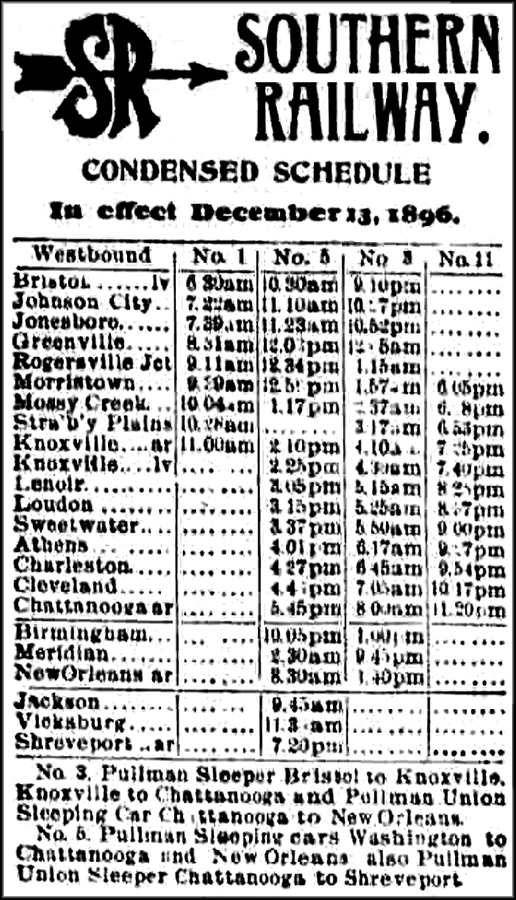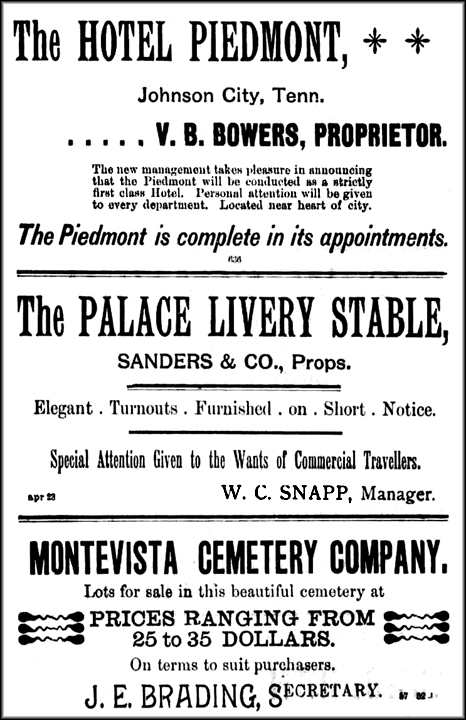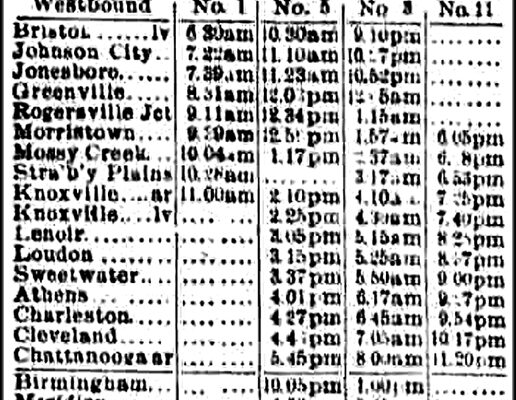Municipal quarrels are a thing of modern day and long-ago; only the magnitude of the dollar amount has changed. In April 1897, a local newspaper, The Staff, contained an inflammatory editorial:
“The people of Johnson City are all poor and they know it. They also know that much of the vaunted wealth of Jonesboro has been created by litigation and other business ventures originating in Johnson City. For instance, an unjust system of taxation levies a tribute of $2.50 on every taxpayer in Johnson City, while it charges only $.85 on the taxpayers of Jonesboro.”
The publication noted that those were actual facts and that the citizens living outside of Jonesboro would do well to ponder them in order that they may see which of these towns had more than borne its fair share of taxation. They would then realize that one town had grown rich at the expense of the balance of the county.
The editorial challenged the newspaper to point out how, why and wherein the litigation originating in Johnson City had added so much to the wealth of Jonesboro. Also, they wondered why the taxpayers of Johnson City would allow this injustice to continue without an inquisition. The Staff's clipping very likely grabbed their attention.

Southern Railway Train Schedule in 1897
“If our contemporaries do not know how much Johnson City contributes to and receives from the school fund,” it stated, “they have an easy way of finding out. The fact of the matter is, many of them don't want to know, as the publication of these statistics for the Ninth and Fifteenth Districts would make such an loathsome comparison that the people outside of these two districts would open their eyes in astonishment.”
They did not report how much Johnson City contributed to the school fund, but to set the minds of those who wished to know, they gave a few figures on the subject. Looking at 1896 figures, for instance, it revealed that the assessment for school purposes in Jonesboro's Ninth Civil District was $3,821.12; however that district received from the school fund $4,134.70, thus showing that the district received $313.58 more than they were assessed.
But this was not all. It was a well-known fact that the Ninth District was delinquent in about $1,000 for the year on their assessment for school purposes.
In Johnson City's Fifteenth District, the assessment for schools was $1,215.87 and received from the school fund $1144,81 or $71.06 less than paid.
The Jonesboro magistrates' proposition was to build two county roads, one from Fall Branch to Jonesboro and the other from Boon's Creek to Jonesboro, which was labeled as “a sublime spectacle of unmitigated gall.”

Typical Johnson City Advertisements from 1897
The Magistrates of Jonesboro were not alone in their desire to have good roads in the county. Any student would readily tell The Staff that they alone could not build roads to or from any points in the county. It was the duty of the magistrates of the county to provide this service for all the people and common sense dictated that the proper thing was to first build them to the county seat, which was where citizens frequently traveled.
Of course, it would not be a “sublime spectacle of unmitigated gall” for the magistrates of Johnson City to propose to build a road from their city to Fall Branch or Boon's Creek. That would be acceptable and full of wisdom and justice to the people of the county.
The paper daringly stated that the insinuation that Jonesboro was jealous of Johnson City was without foundation; in fact, it maintained that the people of Jonesboro would rejoice to see Johnson City prosper. However, they did not propose that the county build up the town at the expense of the remainder of the district.
We can only speculate how long the $313.58 dispute lasted.
